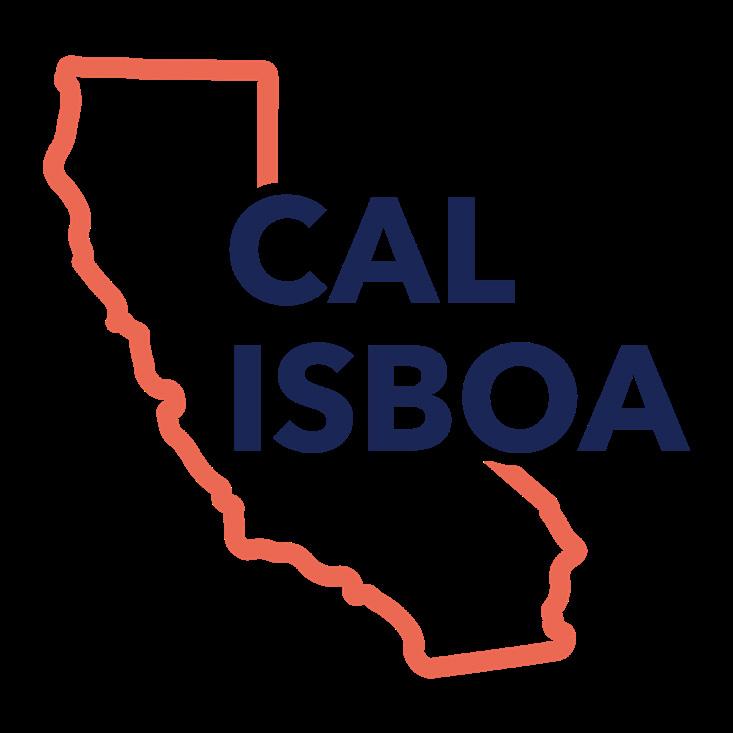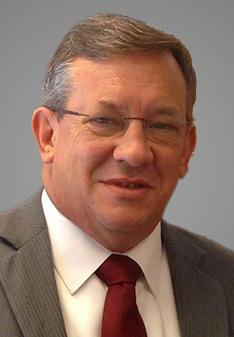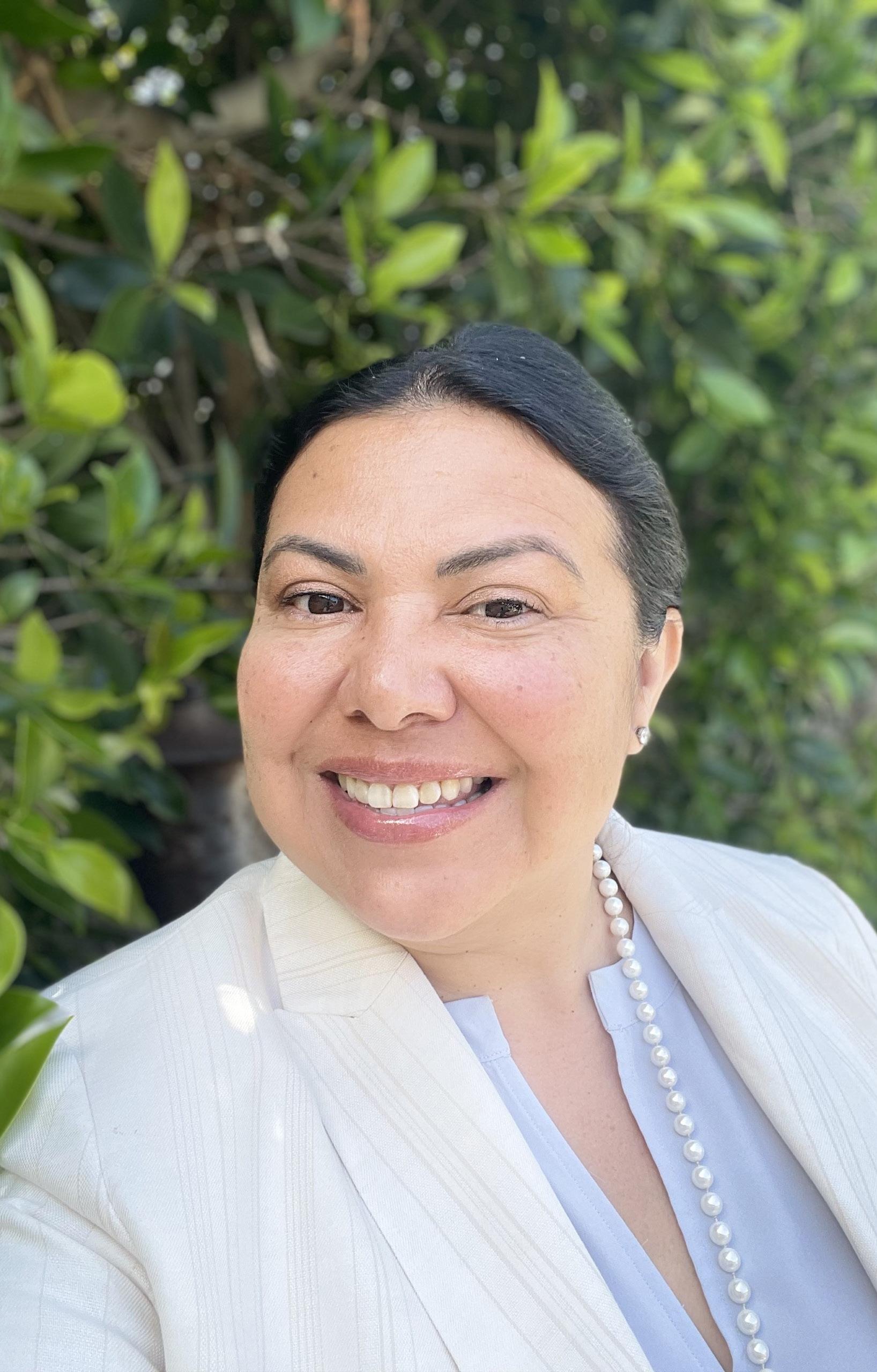Private Education Matters







St. Theresa School is a Roman Catholic elementary school that follows the Archdiocese of Newark’s Policies on Professional and Ministerial Conduct. The first section of this code of conduct contains a Code of Ethics, which requires employees to “conduct themselves in a manner that is consistent with discipline, norms, and teachings of the Catholic Church.”
In 2011, St. Theresa’s hired Victoria Crisitello, an alumna of the school, who signed an acknowledgement of her receipt and understanding of employment documents including the Code of Ethics. In 2014, the School’s principal approached Crisitello about a new position, teaching art full-time. During their meeting, Crisitello stated that she was pregnant. A few weeks later, Crisitello was fired for violating the Code of Ethics by engaging in premarital sex.
Crisitello filed a complaint, alleging discrimination based on pregnancy and marital status. The trial court ruled in favor of St. Theresa’s, finding that New Jersey’s Law Against Discrimination protects religious institutions that require employees to abide by the principles of the Catholic faith, and there was no suggestion here that Crisitello was terminated for her pregnancy or marital status alone. Instead, the trial court held that she was terminated for violating the tenets of the Catholic Church.
Crisitello appealed, and the New Jersey Court of Appeals reversed, ruling that Crisitello made out a successful case for discrimination. The decision was sent back to the trial court, and the trial court again ruled in favor of the School. The trial court explained that there was no evidence that remotely suggested that Crisitello’s pregnancy out of wedlock was not the real reason for her termination. The trial court also found evidence that St. Theresa’s supports its married teachers who become pregnant, and that another Catholic school within the
Archdioceses fired a male teacher after he revealed that his girlfriend was pregnant with their child. Crisitello appealed.
The Court of Appeals again reversed, holding that knowledge or observations of an employee’s pregnancy alone is not a permissible basis to detect violations of a school’s policy and terminate an employee. Crisitello said she knew premarital sex violated the tenets of the Catholic Church, but neither the Code of Ethics nor the employee handbook expressly mentioned premarital sex or that it would result in termination. St. Theresa’s appealed and the case went to the New Jersey Supreme Court.
New Jersey’s anti-discrimination law provides that it is unlawful for an employer to discharge an employee because of the employee’s marital status or pregnancy, among other protected classifications. The law has an exception that provides an affirmative defense that permits a religious entity to follow the tenets of its faith in establishing and utilizing criteria for employment. When invoking the religious exception, the religious employer must show that the employment decision relied solely on employment criteria adopted pursuant to the tenets of its religion. If the employee cannot show that there is a dispute as to whether the decision relied solely on the religious tenets of the employer, then the affirmative defense applies and acts as an absolute bar to liability.
Here, the Supreme Court of New Jersey found that St. Theresa’s successfully asserted the religious exception as a defense to liability.
Crisitello confirmed receipt and understanding of the Code of Ethics and St. Theresa’s was allowed to require employees to abide by Catholic law as a condition of employment.
Crisitello, a practicing Catholic and graduate of St. Theresa School, was aware that she was required to abide by the tenets of the Catholic faith as a condition of her employment. St. Theresa’s was clear that they were terminating her employment for violating Catholic law by engaging in premarital sex. Crisitello offered no evidence that the reason St. Theresa’s gave for her termination was false. As a result, the Supreme Court of New Jersey dismissed Crisitello’s complaint.
Crisitello v. St. Theresa School (N.J., Aug. 14, 2023) __ A.3d__ [2023 WL 5185586].
Note:
While this case was based on New Jersey law, similar cases have been brought in California. This case is a good reminder that religious employers that expect their employees to adhere to certain religious tenets should be clear in articulating that expectation. In this case, one of the reasons the School was able to prevail was that it could demonstrate that the employee understood the School’s expectations because the employee had signed an acknowledgment of receipt and understanding of the Code of Ethics.
Stephen Oross III was a tenured faculty member at Kutztown University. He worked for the University for over 20 years as a psychology professor. In 2014, Professor Oross suffered a major heart attack and underwent double bypass surgery and the installation of a pacemaker and internal defibrillator.
Due to the COVID-19 pandemic, the University operated online for part of the Spring 2020 semester. During the 2020-2021 academic year, the University allowed faculty and staff to submit requests for flexible work arrangements. Professor Oross requested and was granted a flexible work arrangement, where he taught his full academic load, held office hours, and served on faculty committees, all remotely.
During the Fall 2020 semester, Professor Oross experienced a severe worsening of his heart condition, which resulted in a full-time medical leave of absence for the Spring 2021 semester. During this semester, Professor Oross received a heart transplant.
The University reopened for the 2021-2022 academic year. The Director of HR emailed all employees that they would need to return from their flexible work arrangements for the Fall 2021 semester. Faculty were required to teach in-person and hold office hours in-person. Mask requirements were lifted and the University did not have a vaccine requirement.
As a result of his heart transplant, Professor Oross was required to take immune-suppressing medications and his doctors believed he was at increased risk of severe illness or death from COVID-19.
Professor Oross requested to work remotely for the Fall 2021 semester. His doctor provided a note stating that Professor Oross’ immunosuppressed state and increased rates of COVID-19 infections created a serious concern about teaching in-person and being in close contact with students. Other than working remotely, Professor Oross’ doctor placed no other restrictions on Professor Oross’ ability to return to his job.
The Director of HR denied the request. Other faculty members had requested remote work accommodations for the Fall 2021 semester, but the University denied all of them. The University’s rationale for all requests was that the ability in teach in person is an essential function of the faculty position and converting classes from inperson to online would be a fundamental alteration of the University’s course offering to students, thus creating an undue hardship to the University.
At the same time, the University did not receive any documentation from the Dean or the Department Chair suggesting that providing Professor Oross remote work accommodations would provide any difficulty or added expense. In fact, the University had the existing technology to provide online classes.
Professor Oross brought suit against the University alleging disability discrimination under Section 504 of the Rehabilitation Act.
To establish a prima facie case of discrimination, a plaintiff must show, (1) that he or she has a disability; (2) that he or she is otherwise qualified to perform the essential functions of the job, with or without reasonable accommodations by the employer; and (3) that he or she was nonetheless terminated or otherwise prevented from performing the job. If the plaintiff is able to meet these burdens, the defendant then bears the burden of proving, as an affirmative defense, that the accommodations requested by the plaintiff are unreasonable, or would cause an undue hardship on the employer. An undue hardship involves significant difficulty or expense in providing the accommodation.
Here, the Court determined that no union agreement, job description, or course description stated that teaching in-person and conducting office hours in-person were essential functions of a faculty member’s job in general
and of Professor Oross’ position in particular. To the contrary, the University published marketing materials that said distance education was critical to the University’s mission. The University had a team dedicated to creating a distance education infrastructure. The University offered approximately 15% of their course offerings online in the Fall semester of 2021. Professor Oross had his certificate in online teaching from the University and had taught various online classes over the last seven years. The University offered no evidence that the quality of a class decreased due to the class being offered online. The Dean and Psychology Department Chair did not object to Professor Oross’ request. The Court therefore concluded that teaching in-person was not an essential function of Professor Oross’ job.
The Court also determined that the University did not provide any evidence of an undue hardship. The University had a framework for providing remote teaching and existing technology allowed Professor Oross to interact with his students in real time without significant difficulty or expense to the University. The Court found that student preferences that classes be in-person do not qualify as an undue burden under the Rehabilitation Act.
Finally, the Court concluded that the University’s policy of denying any request for remote work was problematic. The Court determined that it would not have been a fundamental alteration of the University’s pedagogical model to allow Professor Oross to teach four courses and office hours online for one semester. The Court also determined that the University did not make any effort, let alone a good faith effort to accommodate Professor Oross. As a result, the Court found in favor of Professor Oross.
Oross v. Kutztown Univ. (E.D.Pa. July 25, 2023, No. 21-5032) [2023 WL 4748186].
Note:
Although the Rehabilitation Act only applies to schools who receive federal funding, the framework for a disability discrimination claim under the Americans with Disabilities Act is largely the same. A couple of important takeaways from this case are that (1) schools should be aware that blanket denials for remote work can be legally risky—the interactive process requires a case-by-case analysis; and (2) schools should include language in their employment agreements that certain positions are required to be in-person in order to help defend against similar claims.
Kristina Raines and Darrick Figg, sued on behalf of themselves and a class of conditional offer of employment recipients. They alleged that they received offers of employment that were conditioned on pre-employment medical screenings that U.S. Healthworks Medical Group (USHW) performed. USHW conducted the medical screens as agents of the prospective employers. Raines and Figg claimed that USHW violated the California Fair Employment and Housing Act (FEHA) by requiring job applicants to complete a written health history questionnaire that included numerous questions that had no bearing on the applicant’s ability to perform job functions.
Government Code Section 12940 of the FEHA makes it an “unlawful employment practice” for an employer of five or more persons “to make any medical or psychological inquiry of an applicant.” The FEHA only allows these inquires “after an employment offer has been made but prior to the commencement of employment duties, provided that the examination or inquiry is job related and consistent with business necessity and that all entering employees in the same job classification are subject to the same examination or inquiry.”
The federal district court dismissed the FEHA claim, finding that FEHA does not impose liability on agents of an employer. Raines and Figg appealed the dismissal to the U.S. Court of Appeals for the Ninth Circuit.
The Ninth Circuit heard oral argument and then asked the California Supreme Court to answer this question: “Does California’s [FEHA], which defines ‘employer’ to include ‘any person acting as an agent of an employer,’ …, permit a business entity acting as an agent of an employer to be held directly liable for employment discrimination?”
The California Supreme Court answered yes. The FEHA’s plain meaning and legislative history, as well as federal antidiscrimination laws and public policy, all support the conclusion that an employer’s businessentity agents that have at least five employees and that “carr[y] out FEHA-regulated activities on behalf of an employer” can fall within FEHA’s definition of
“employer” and may be directly liable for FEHA violations. The Court specifically stated that it was not deciding the significance of any employer control over the agent’s acts that gave rise to the FEHA violation, nor whether its decision applied to business-entity agents with fewer than five employees.
Raines v. U.S. Healthworks Medical Group, 2023 Cal. LEXIS 4619.
Note:
This ruling significantly expands the scope of FEHA liability to an employer’s business-entity agents that employ five or more people. Although this case does not involve the employers who extended the conditional offers, the case also does not immunize an employer from liability for delegating FEHA regulated functions to business agents. As a result, schools should carefully vet prospective agents to confirm that their practices are FEHA-compliant.
Thursday, November 9, 2023

8:30 a.m. - 2:00 p.m.
Cal-ISBOA is once again partnering with Liebert Cassidy Whitmore (LCW) to bring you a virtual California Legal Symposium this fall. The Symposium will feature top brass from LCW who will provide a deep dive into current legal issues facing independent schools, with an emphasis on operating in California's legal and regulatory environment. This is a must-attend event for anyone who has to make important decisions for their school. We hope to see you there!

For more information, visit Cal-ISBOA's website here

Ronald Vincer worked in a manufacturing plant. Vincer was very social. He talked with others at their workstations, especially coworker James Boustead. Vincer’s superiors periodically counseled him about performance deficiencies, including excessive talking, distracting coworkers, and using his cell phone. His most recent counseling occurred on March 5, 2020.
On March 16, 2020, the state’s governor announced that a stay-at-home order and the closure of non-lifesustaining businesses would be effective the following day due to COVID 19. Vincer’s supervisors periodically updated employees about developments. Vincer and Boustead talked every day at work about the pandemic, including the fact that Boustead was at high risk because of his medical history. Vincer told Boustead and other employees that the plant should close because it was not an essential or life-sustaining business. Vincer also told Boustead that someone should tell the authorities that the plant was still open.
Also on March 16, two supervisors convened an allhands meeting. One stated that the plant was an essential business; he outlined the health and safety measures the plant was taking. Vincer was upset; he said that the plant did not take proper precautions and that the employees should not be working. Several others also questioned whether the plant was an essential business. The supervisor stated that employees needed to keep working until there was clarification from the state government.
Two days later, a plant employee learned that his wife had been sent home from her job because of flu-like symptoms. The employee shared that information with Vincer, who counseled the employee to tell the supervisor. The supervisor sent the employee home, but he returned to work two days later. Vincer asked the supervisor about the return-to-work requirements after having or being exposed to COVID. Vincer asked the supervisor if the plant should be operating. The supervisor said he believed the plant was a life-sustaining business.
Vincer spoke to Boustead and urged him to speak with supervisors about Boustead’s health vulnerabilities and the plant’s safety protocols. The supervisor assured Boustead that the plant would direct anyone who had or who was exposed to COVID stay home and be tested.
On March 24, a supervisor observed Vincer text messaging and reported this to another supervisor. Almost immediately, and without further investigation, the supervisors went to a third supervisor and recommended that Vincer be terminated. The third supervisor agreed. Shortly thereafter, Vincer was terminated for poor attitude, talking, and lack of profit.
The administrative law judge found that Vincer’s conduct – raising concerns to his supervisors about COVID protocols and the plant’s decision to remain open for business – was both concerted activity and for mutual aid or protection of other employees within the meaning of the National Labor Relations Act (NLRA). The judge rejected the plant’s arguments that Vincer’s complaints were only individual griping and not concerted. The judge did not accept the plant’s arguments that it terminated Vincer for poor performance and policy violations. The plant appealed to the National Labor Relations Board (NLRB).
The NLRB agreed that the plant’s decision to terminate Vincer interfered with Vincer’s rights to participate in concerted activities for mutual aid or protection. The NLRB decided that even an activity that starts with only a speaker and a listener can be concerted if the activity is an indispensable preliminary step to employee selforganization. Moreover, an employee’s statement need not explicitly induce group action, but can implicitly elicit support from other employees. The NLRB must conduct a thorough review of all the evidence to determine whether an individual employee’s protest had “some linkage to group action.”
The NLRB overruled its 2019 decision in Alstate Maintenance, which held that concerted activity only occurs if there is evidence of group activities, such as prior or contemporaneous discussion between or among members.

The NLRB held that Vincer’s COVID-related comments were concerted because they sought to bring “truly group complaints” to management’s attention. Vincer’s one-on-one conversation with a supervisor was concerted because it was a logical outgrowth of the “truly group” complaint that Vincer had raised in the prior all-hands meeting. The NLRB held that Vincer’s conduct was concerted under the NLRB’s totality-of-thecircumstances test.
Miller Plastic Products, Inc. and Ronald Vincer, NLRB Case No. 06-CA-266234 (8-25-2023).
Note:
A key takeaway for schools is to never to discipline an employee with a long-standing performance problem without thoroughly analyzing what precisely is precipitating the employer’s decision to now deal with a long-standing issue. In this case, the plant had tolerated the employee’s social activity for about five years, but fired the employee within two weeks after he raised safety concerns at an all hands meeting.
Thursday, November 16, 2023 10:00 a.m. - 11:00 a.m.
Many new laws affecting California private schools are set to take effect January 1, 2024. The LCW Legislative Roundup webinar will explain what private schools need to know about these new laws and how they may affect your school. Attendees will leave this webinar with insights on the impacts of the new laws, an understanding of new legal obligations, and helpful strategies to comply with the new laws.
Register here!

On August 30, 2023, the U.S. Department of Labor (DOL) issued a proposed rule that would make the following changes to the Fair Labor Standards Act (FLSA) regulations:

• Increase the FLSA regulations’ standard salary level for FLSA-exempt employees from the current level of $684 per week ($35,568 per year) to $1,059 per week ($55,068 per year).
• Increase the total annual compensation requirement for highly compensated FLSA-exempt employees from $107,432 per year to $143,988 per year.
• Automatically update these earnings thresholds every three years to keep pace with changes in worker salaries, so that employers would know when salary updates would happen and how they would be calculated.
The proposed rule would also restore overtime protections for U.S. territories, ensuring workers in those territories where the FLSA minimum wage applies have the same overtime protections as other U.S. workers.
Once the DOL’s Notice of Proposed Rule Making is published in the Federal Register, the public will have 60 days to submit comments. We will keep readers informed as this proposed rule works its way through the approval process.
Phillip Murray, an Associate in our Sacramento office, provides labor, employment, and education law expertise to our clients. Prior to joining LCW, Phillip served at the California Correctional Peace Officers Association where he represented correctional peace officers in a variety of proceedings including interrogations, reviews, and appeals.
Scott Fera, a Senior Counsel in our Sacramento office, provides advice, counsel, and trainings to our public agency, public and private education and nonprofit clients in a wide range of matters spanning from labor and employment, business and facility use, nonprofit governance, Title IX, and student issues.

In 2013, Karl Zirpel began working at Alki David Productions, Inc. ADP is an entertainment and media company. In 2014, ADP began focusing on hologram technology, by which images are projected for audience viewing. By March 2014, Zirpel was ADP’s vice president of operations.
In September 2017, Zirpel began working at a theater that ADP was converting for hologram productions. Zirpel was to install the hologram equipment. ADP had publicized an invitation-only special event at the theater on September 28, 2017, for celebrities and potential investors.
Zirpel was at the theater on September 25, 2017, when four different Los Angeles City inspectors arrived. Zirpel, ADP’s in-house counsel Manuel Nelson (Nelson), and ADP’s general contractor completed four walkthrough inspections. The inspector identified many deficiencies that required correction, and said the approvals would not occur before the September 28 event. The Los Angeles Department of Building and Safety issued a correction notice identifying multiple violations of municipal code sections.
After the inspectors left, ADP’s principal Alkiviades David ordered the construction crew to use plywood and drapes to cover exposed electrical wiring on the theater walls. Zirpel felt that David’s “fix” created a fire hazard and jeopardized ADP employees and the public. On September 26, 2017, Zirpel informed ADP’s senior vice president of operations, Ian Robertson, that two inspectors had said the theater could not open on September 28, 2017. Zirpel told Robertson he intended to telephone the fire inspector about these concerns.
Zirpel called a Los Angeles County fire inspector on September 26. Zirpel eventually spoke to a receptionist. Without giving his name, Zirpel said, "the theater was scheduled to open on September 28; that inspectors had come, but 'none of the work was approved;' no permits had been issued; and someone should come to the theater."
On September 27, 2017, Zirpel and ADP’s chief technical officer, Nick, met a fire inspector. The inspector stopped all work, told everyone to leave, and said that no work could be done without posted fire exit signs. Zirpel understood this to mean that “when those signs were posted, we had the clearance to go back in and work again.”
Nick left the theater to purchase fire exit signs and Zirpel left in a U-Haul truck to retrieve the hologram equipment. Zirpel texted inhouse counsel Nelson about the conversation with the fire inspector. Zirpel asked if there was a time frame for the permit, and said he would be “on standby to unload” the hologram equipment. Nelson texted back, stating that a permit application had been submitted; that he was meeting with the inspectors the following day; and that until the application was denied, “all of us need to continue working toward the special event.”
David texted Zirpel, stating, “We need this setup done. I read this text you sent. The permits will be given tomorrow morning. Nothing stops.” When Zirpel returned to the theater, he saw work being done. Zirpel met with Ian Robertson and Nick and expressed concerns about installing the hologram equipment without approvals. Zirpel said the work should not be proceeding because it was unsafe. Zirpel stopped all work.
David arrived at the theater and demanded to know why no work was being done. Zirpel responded, “we’ve got none of the inspectors signed off on any of the work done.” He then listed reasons why the theater should not open on September 28.
David “immediately blew up,” and told Zirpel to shut up and “go with the program,” and that he was either “in or out.” Zirpel repeatedly stated what they were doing was not safe. David went into a “fit of rage,” yelled in Zirpel’s face, and using numerous obscenities, told Zirpel to “get out,” to “get the f . . . out, you faggot,” and that Zirpel was fired.
Zirpel handed David the U-Haul keys and left the theater. David sarcastically told him to perform a sexual act. Zirpel found David’s conduct “traumatic,” because Zirpel “wasn’t out to a lot of people.” David followed Zirpel out of the theater and continued yelling. David walked away, and then returned and “came to his senses,” realized “the mistakes he made,” and tried to embrace Zirpel. Zirpel told David to get away. Zirpel did not return to work. The September 28 event occurred as scheduled.
Zirpel then filed a lawsuit alleging that his termination constituted retaliation under the Labor Code for disclosing information: 1) that Zirpel believed violated building codes (Section 1102.5); and 2) about his working conditions (Section 232.5). The case went to trial and the jury returned a verdict for Zirpel, and awarded him nearly $7 M in total damages. ADP then appealed the verdict.
Labor Code Section 1102.5(c) states: “An employer, or any person acting on behalf of the employer, shall not retaliate against an employee for refusing to participate in an activity that would result in a violation of state or federal statute, or a violation
of or noncompliance with a local, state, or federal rule or regulation.”
A person suing for violation of Labor Code Section 1102.5 must identify both the specific activity and the statute, rule, or regulation at issue; the court then determines whether the activity would result in a violation or noncompliance, and, if so, the jury determines whether the person was retaliated against for refusing to participate in the activity.
The activity at issue in this case was the installation of the hologram equipment. At trial, Zirpel showed that continued construction work would have violated county and city codes. ADP appealed to the California Court of Appeal.
ADP first argued that ADP did eventually get a permit, and therefore there was no unlawful activity. The Court noted that there was no evidence that any permit was approved before the September 28 event. The Court also found that the trial court was correct to find that Zirpel’s continued work at the theater would have violated a statute, rule or regulation, as required to prove a violation of Section 1102.5.
The Court next turned to the Labor Code Section 232.5 claim. That law states in part: “No employer may . . . [d]ischarge, formally discipline, or otherwise discriminate against an employee who discloses information about the employer’s working conditions.” Here, the key question was whether Zirpel’s disclosures were a substantial motivating reason for terminating his employment.
The Court found evidence that Zirpel repeatedly told David about the unsafe working conditions. David responded by becoming enraged, yelled obscenities, and telling Zirpel he was fired. Very close temporal proximity can establish retaliation. Here, the temporal proximity was immediate. Also, the jury applied the correct legal standard when it determined that Zirpel’s disclosures were “substantial motivating” factors in his termination.
Finally, the Court found that the $6 million in punitive damages that the jury awarded would stand because it was not excessive, given this evidence of David’s malice and reprehensible conduct: screaming obscenities at Zirpel in the presence of coworkers; using a slur to disclose and describe Zirpel’s sexual orientation; sarcastically requesting Zirpel perform a sexual act; standing so close to Zirpel that spittle flew into Zirpel’s face; and firing Zirpel for standing up for the safety of others.
Note:
This case is stunning for two reasons: 1) the unequivocal evidence of retaliation for blowing the whistle on workplace safety; and 2) the six-toone ratio between the punitive and economic damages. Although the law prevents courts from awarding punitive damages against a public entity employer, the law allows punitive damages against public employees. This case demonstrates how strongly juries condemn those who retaliate against whistleblowers.
In 2014, Harvard purchased a one-year liability insurance police from the American International Group, Inc. (AIG). The policy covered litigation costs in the event a claim was brought against Harvard, as well as the liabilities resulting from a judgment or settlement, up to $25 million. The policy included “claims-made coverage,” meaning Harvard was required to provide prompt written notice of any claim filed against them.
In addition to the AIG policy, Harvard purchased a secondary policy from Zurich American Insurance Company (Zurich) to insure against an additional $15 million in costs should a claim exhaust the AIG coverage. The Zurich policy also required prompt written notice of any claims, in the same manner as the AIG policy.
Under both policies, Harvard had to report the claims within 90 days of the end of the policy period. The policies provided coverage from November 1, 2014 to November 1, 2015, so any claim against Harvard had to be reported no later than January 30, 2016.
On November 17, 2014, the Students for Fair Admissions sued Harvard for unfair admissions practices, which culminated in the recent affirmative action decision by the Supreme Court. On November 19, 2014, in anticipation of the legal costs, Harvard notified AIG of the pending suit, securing coverage under the primary policy. Harvard did not notify Zurich of the suit until May 23, 2017. Zurich denied coverage under the excess policy due to failure to furnish timely notice.
Harvard sued Zurich, seeking damages for breach of contract. Zurich argued that Harvard forfeited any
entitlement to coverage. The trial court ruled in favor of Zurich and Harvard appealed.
On appeal, Harvard argued that the trial court misapplied the law by requiring strict compliance with the notice requirement. The Court of Appeals was not persuaded. The Court looked at the plain language of the insurance policy. Harvard purchased a claims-made policy from Zurich, and failed to provide notice until long after the deadline stipulated had passed. Therefore, Zurich had every right to deny coverage based on a lack of timely notice.
The Court of Appeals also considered the practical importance of timely notice, which allows the insurance company to promote fairness in setting its rates. Harvard had the responsibility to understand the type of coverage it purchased, and the Court of Appeals was not willing to rewrite the policy or Massachusetts law to conform to Harvard’s expectations.
President & Fellows of Harvard Coll. v. Zurich Am. Ins. Co., (1st Cir. 2023) __ F.4th __ [2023 WL 5089317].
Note:
This case is an important reminder that schools need to tender claims to their insurance companies in a timely manner, especially when they have multiple insurance policies, in order to ensure coverage. In this case, the impact on Harvard was several million dollars’ worth of lost coverage.
A lawsuit against Yale University over its affirmative action policies was dropped after the University agreed to make significant changes to its admissions policies. Students for Fair Admissions (SFFA) originally filed the lawsuit against Yale in 2021, challenging Yale’s
admissions policies. SFFA was the same group that brought lawsuits against Harvard and the University of North Carolina, challenging their admissions practices.
The parties discussed Yale’s response to the Supreme Court’s decision, and, as part of those discussions, Yale agreed to take the following actions:
• It has updated its training materials to make clear that race may not be used as a factor in making admissions decisions;
• It will take technological steps to ensure that no person involved in making admissions decisions has access to check-box racial data from its application services at any time during the admissions review cycle;
• Its admissions office will not run any reports during the review cycle that would provide any aggregate data with regard to the racial composition of admitted students;
• Race will not be a factor in calculating or awarding financial aid.
Note:
This agreement requires Yale to make significant and wide-reaching admissions policy changes, and encompasses not only race-conscious admissions, but also financial aid and data transparency. These changes are more restrictive than the Supreme Court’s opinion suggests, but indicates that challenges to financial aid and data transparency may be more common as schools navigate the Supreme Court’s decision.

Ana brings over 16+ years of human resources experience working in both national and international multi-office law firm platforms.

Debra Turner was a director on the Board of the Conrad Prebys Foundation, a nonprofit public benefit corporation named for its founder, who was a wealthy philanthropist. In addition to the foundation, Prebys created a trust, and directed it to make distributions to specific beneficiaries after his death. The assets remaining after the gift distributions were to go to the Foundation to be used for charitable purposes.
Under the Foundation’s bylaws, all of its directors were members of the Foundation, and the Foundation had no other members. Most of the directors had a personal relationship with Conrad Prebys. For example, Turner was Prebys’ longtime partner, and the two lived as a couple for over 16 years.
After Prebys passed, there was a contest over Prebys’ trust, as Conrad Prebys’ son, Eric, was originally a beneficiary of the trust and eliminated from the trust two years before Conrad Prebys died. Laurie Anne Victoria, another Board member and the trustee of the trust, wanted to settle Eric’s claims and discussed an appropriate settlement amount with the Board. Turner was the only director who opposed the settlement. Eventually, the Board authorized a settlement amount of $12 million, and Victoria settled with Eric for a total of $15 million, paying $9 million to Eric directly and the remainder in taxes.
In May 2017, Turner filed a petition in probate court against her fellow Board members (directordefendants), alleging breach of charitable trust, breach of the Board members’ duty of care, self-dealing in violation of the Board members’ duty of loyalty, and removal of members of the Board for dishonest acts and gross abuse of authority. All causes of action were based on the Board’s handling of the settlement with Eric.
The directors were aware of Turner’s lawsuit prior to a Board meeting held in November 2017, at which the Board conducted an election of Foundation directors and officers. The four director-defendants nominated
and seconded one another for reelection. No one nominated Turner for reelection, despite Turner making it clear that she wanted to remain on the Board. As a result, Turner was no longer a director, officer, or member of the Foundation, which she alleged was an act of retaliation in response to her lawsuit.
The probate court transferred Turner’s claims to a civil court and made clear that the new proceeding would relate back to the date of the original filing, when Turner was still a director of the Foundation. Nonetheless, when Turner filed the civil complaint, the directors argued that Turner no longer had standing to maintain the lawsuit because she was no longer a director or member of the Foundation. The trial court agreed and dismissed the claims, and the Court of Appeal affirmed.
The California Supreme Court reversed the Court of Appeal’s ruling, finding that Turner was not required to maintain a continuous relationship with the Foundation to proceed with her suit. The Court considered that California’s Nonprofit Corporation Law does not have a continuous directorship requirement that would require dismissing the suit if a director fails to stay in a director position.
The Court was also concerned about the practical effects of upholding the Court of Appeal decision, namely the gamesmanship by directors accused of wrongdoing. For example, director-defendants would be able to end a lawsuit by removing director-plaintiffs from office, refusing to reelect these director-plaintiffs, or otherwise making it more difficult for director-plaintiffs to retain their positions. At the same time, a director-plaintiff would have little incentive to bring a lawsuit, knowing it could lead to the loss of their directorship and then an end to the lawsuit.
The California Supreme Court reversed the Court of Appeal decision.
Turner v. Victoria, (2023) __ Cal__ [2023 WL 4939730].
Note:
This case establishes a new precedent in California. It is relevant for boards at schools, who should be aware that former directors can bring lawsuits against board members after those former directors are removed or otherwise leave the board.
The Fellowship of Christian Athletes (FCA) is a ministry group formed for student athletes to engage in various activities through their shared Christian faith. FCA holds certain core religious beliefs, including a belief that sexual intimacy is designed only to be expressed within the confines of a marriage between one man and one woman. FCA requires students serving in a leadership capacity to affirm a Statement of Faith and abide by a sexual purity policy.
In San Jose Unified School District, studentrun organizations can apply for recognition as part of the District’s Associated Student Body (ASB) program. ASB recognition provides clubs with recruiting tools, such as inclusion in the official club list and student yearbook, access to ASB financial accounts and ASB-sanctioned fundraisers, an official campus faculty advisory, and priority access to meeting places on campus. Since the early 2000s, FCA chapters enjoyed ASB recognition at three District high schools. No student ever complained to the District that he or she wanted to hold a leadership position in an FCA chapter but was ineligible due to FCA”s religious requirements. Likewise no student ever complained that he or she felt excluded by FCA’s religious beliefs.
In April 2019, a teacher (Glasser) at a District school (Pioneer) obtained copies of FCA’s Statement of Faith and Sexual Purity Statement. He viewed these statements as objectionable and posted the statements on his whiteboard with a note: “I am deeply saddened that a club on Pioneer’s campus asks its members to affirm these statements. How do you feel?” In addition to the whiteboard note, Glasser sent two emails to the School’s principal with concerns about the pledge, especially the ways in which the pledge could impact LGBTQ+ students. Shortly thereafter, the School held a leadership committee meeting of department chairs and administrators, and decided to bring their concerns to the District. Two days later, the District stripped the club of ASB approval.
For the 2019-2020 school year, FCA applied for but was denied ASB recognition. Another club, the Satanic Temple club, was formed and granted ASB approval. For the 2020-2021 school year, FCA was granted provisional ASB approval.
In April 2020, two FCA student leaders at Pioneer, Pioneer FCA, and FCA National filed suit against the District and several school officials, seeking relief for (1) equal access to extracurricular school clubs under the Equal Access Act (EAA); (2) Free Speech, Free Expressive Association, and Free Exercise of Religion under the First Amendment; and (3) Equal Protection under the Fourteenth Amendment. In July 2021, Plaintiffs filed a motion for a preliminary injunction, requiring the Defendants to restore recognition to student chapters affiliated with FCA as official ASB approved student clubs.
In response to the litigation, the District adopted a new version of its non-discrimination policy for the 2021-2022 school year called the AllComers Policy, which included language that required that ASB recognized student groups to permit any student to become a member or leader, if they meet “non-discriminatory criteria.” Despite the All-Comers Policy, schools in the District were allowed to maintain clubs with facially discriminatory membership requirements. For example, the Senior Women club retained approval even though it was open only to seniors who identify as female. Likewise the South Asian Heritage club could prioritize acceptance of south Asian students. FCA could not gain ASB approval under the All-Comers Policy so it did not apply for ASB recognition in the 2021-2022 school year.
The trial court denied Plaintiffs’ motion for a preliminary injunction, finding that the AllComers Policy was unlikely to violate Plaintiffs’ rights. Plaintiffs appealed and a divided threejudge panel reversed the decision, ordering the District to recognize the FCA student groups. The District appealed, asking for a rehearing en banc.
Plaintiffs seeking a preliminary injunction must establish that they are likely to succeed on the merits, that they are likely to suffer irreparable harm in the absence of preliminary relief, that the balance of equities tips in their favor, and that an injunction is in the public interest.
Here, the en banc Court considered the merits of FCA’s First Amendment Free Exercise Clause claim. The Court stated that for laws or policies that burden religious exercise, they must be neutral and generally applicable, otherwise the law or policy must pass what is known as “strict scrutiny.”
To be considered neutral and generally applicable, the policy may not allow for individualized exemptions, may not treat comparable secular activity more favorably than religious exercise, and must not be hostile to religious beliefs. Here, the All-Comers Policy prohibited all ASB clubs from enacting discriminatory membership and leadership criteria, and were not generally applicable. The District retained discretion to grant individual exemptions and did so in a discriminatory manner—the District allowed exemptions based on the District officials’ use of “common sense,” for example, by allowing clubs and programs to restrict membership on attributes such as good character. The Court determined that the District treated comparable secular activity more favorably than religious exercise, for example, by allowing the Senior Women club to admit only those who identify as female. The Court determined that the District penalized FCA based on its religious beliefs.
Therefore, the District’s policies had to pass strict scrutiny, meaning the policies had to be narrowly tailored to advance a compelling government interest. Here, the District failed to show that it even considered less restrictive measures. As a result, the Court of Appeals reversed the trial court’s ruling and directed the trial court to reinstate FCA’s recognition as an ASB approved student club.
Fellowship of Christian Athletes v. San Jose Unified Sch. Dist. Bd. of Educ. (9th Cir. 2023) __ F.4th__ [2023 U.S. App. LEXIS 24260].
Note:
Although this case involved a public school district in California, it is relevant for private schools as well because it highlights the complexities that can arise in approving and denying student groups on school campuses.

In 2018, Nigel B. was an eighth-grade student at John Muir Middle School, part of the Burbank Unified School District. A fellow eighth-grader, Gianni, frequently physically and verbally bullied Nigel. Other students also witnessed this bullying. However, no one reported it to school officials.
Nigel’s physical education teacher, Dylan Washausen, “passively” supervised students and was always on his phone during class. Students in his class routinely roughhoused Nigel. Washausen told students who were involved in altercations or injuries not to “go home and whine about this to [their] parents.” During ultimate frisbee, a student, Richard, twisted Nigel’s arm and asked him if he wanted to die. While Nigel did report this to the assistant principal responsible for student discipline, neither the principal nor the assistant principal alerted Washausen, and Richard’s bullying continued. Another student, Nick, pushed Nigel from behind so hard that his head bounced off the ground. Washausen yelled at Nick and asked Nigel if he wanted to get Nick in trouble. Nigel said “no” because he believed that “snitches [got] stitches.” Washausen did not discipline Nick.
On April 17, 2018, Gianni and Nigel were playing a competitive game of touch football on opposing teams during a mandatory physical education class. When Nigel caught a pass, Gianni ran into him at full speed, sending Nigel flying several feet in the air. Nigel fell on his left side and screamed in pain as he tore a ligament in his knee. A student ran to tell Washausen, who was surprised by the injury.
Nigel sued the District and Washausen for negligence and breach of a mandatory duty in violation of Education Code Section 49079. Education Code Section 49079 requires a public school district to inform teachers about students who have engaged in or who are reasonably suspected of causing or threatening physical injury or willfully using violence on another person.
At trial, the District requested that the court instruct the jury on the primary assumption of risk doctrine. The
primary assumption of risk doctrine applies to activities “involving an inherent risk of injury to voluntary participants where the risk cannot be eliminated without altering the fundamental nature of the activity.” The trial court ruled that the doctrine did not apply because the injury occurred in a mandatory class. The jury found that the District breached a mandatory duty under the Education Code, that Washausen was negligent, and that Nigel suffered resulting harm. The jury awarded Nigel $500,000 for future medical expenses, $750,000 for past noneconomic damages, and $500,000 for future noneconomic damages. The District appealed.
The California Court of Appeal for the Second District found that the District did not breach its mandatory duty because Nigel did not provide substantial evidence to show that the District’s failure to report other students’ conduct toward him to teachers caused his injury. To find liability for a breach of Section 49079 (a), the breach must be a substantial factor in the cause of the injury.
There was no evidence that the District knew of Gianni’s behavior, so the District could not have breached their mandatory duty in that manner. The Court of Appeal also found that even though Gianni acted intentionally and not negligently, the trial court should have instructed the jury on comparative fault and the jury should have been able to allocate fault accordingly. The Court of Appeal remanded on the issue of comparative fault.
The Court of Appeal upheld the trial court’s ruling that the primary assumption of risk doctrine does not apply to a mandatory class. The Court of Appeal emphasized that “voluntary participation” is necessary for the primary assumption of risk doctrine to apply, and mandatory physical education class activities are not voluntary. Accordingly, the trial court did not err when it refused to instruct the jury on the primary assumption of risk doctrine.
Nigel B. v. Burbank Unified Sch. Dist. (2023) 93 Cal. App. 5th 64, reh’g denied (July 25, 2023).
Note:
This case involved a public school in California, but private schools should be aware that they may not be able to raise a primary assumption of risk defense in situations where student participation is required.
LCW represents and advises private schools and colleges in various business, construction, and facilities matters, including all aspects of construction projects from contract drafting and negotiations to course of construction issues. Through this Construction Corner, LCW will be giving private schools and colleges monthly helpful tips on a variety of topics applicable to campus construction projects. LCW attorneys are available should you have any questions or need assistance with any construction projects no matter what phase you may be in currently.
 By: Victoria Gómez Philips
By: Victoria Gómez Philips
Schools can benefit from solar power as an energy source because solar power can lower traditional energy bills. To obtain solar power, a school generally has two options. It can purchase solar panels through a solar panel purchase agreement. Alternatively, it can allow a solar company to install solar panels on its property and purchase power from that solar company through a power purchase agreement. Regardless of the route the school determines is best, the school should pay attention to the agreement it is entering into to ensure it reflects the school’s understanding of the agreement. Solar companies tend to present the schools with form contracts that favor the solar company and that do not always reflect the school’s situation. The school should take the following into consideration prior to executing a contract with a solar company:
• The contract should clearly identify which party will obtain the federal and state tax incentives. If the school is purchasing the solar panels, it is more likely to be eligible for the tax incentives. If the school is entering into a power purchase agreement, the solar company would likely receive the federal and state tax incentives.
• The contract should address who will be responsible for the maintenance and repairs of the solar panels. If the school is purchasing the solar panels, it will likely be responsible for the cost of any repairs but will need assistance from the solar company. If the school is entering into a power purchase agreement, the solar company should be responsible for any ongoing maintenance and repairs.
• The contract should address the school’s financial obligations if the solar panels stop providing power. If the school is purchasing the solar panels, the contract should delineate the school’s payment obligations if the solar panels stop functioning. If the school is entering into a power purchase agreement, there should be terms explaining how the school is made whole when power is not provided pursuant to the performance requirements.
• The contract should contain insurance provisions that cover the potential liability and losses associated with the installation, system operations, and system removal, such as worker’s compensation insurance, general liability insurance.
• The contract should not grant the solar company broad access to the school’s property to access the solar system. Sometimes the contract grants the solar company an easement on the property. An easement is an encumbrance on the property that provides the solar company with real property interests. Schools should only agree to grant the solar company the right of access through a revocable license. A revocable license is permission to access the property within the specified limits for a specified purpose and does not provide an encumbrance on or an interest in the land.
• The contract should accurately reflect whether the school is the owner or the lessor of the property where the solar panels will be installed. If the school is leasing the property, it will likely require permission from the landlord to install the solar panels.
• For a power purchase agreement, the contract should contain provisions that explain whether the school can relocate the solar panels if the school moves, sell the solar panels to the new tenant or owner, or assign the power purchase agreement to the new tenant or owner.
• The contract should accurately reflect the costs to the school. If the school is purchasing the solar panels, it should be aware of the associated installation and maintenance costs in addition to the costs for the panels. If the school is entering into a power purchase agreement, it should be aware of the costs of the power, how those costs may change over time and any costs it may incur if it wants to purchase the panels during or at the end of the agreement.
When presented with a power purchase agreement or solar panel purchase agreement, the schools should consult with legal counsel to modify the contract provisions to ensure the school’s interests are protected.

Allentown School District terminated administrator
Joseph LiCausi’s employment on April 30, 2020. As part of LiCausi’s lawsuit against the District for his termination, he filed a claim against the District’s Human Resources Director for intentional infliction of emotional distress (IIED) based on the termination of his health coverage under the District’s group health plan.
At the time of termination, the Human Resources Director (Director) notified LiCausi that he would be sending LiCausi a Consolidated Omnibus Budget Reconciliation Act (COBRA) notice about continuing health insurance. The Director testified that he provided LiCausi with the COBRA notice in May 2020, while LiCausi claimed that he never received it. The District’s health insurance provider Highmark Blue Shield (Blue Shield) informed LiCausi that his health coverage ended on April 1, 2020. There was no clear explanation why Blue Shield ended coverage one month before LiCausi’s formal termination date of April 30, 2020. Since LiCausi’s health insurance coverage ended April 1, 2020, there was a lapse in his health insurance coverage which occurred during the height of the COVID-19 pandemic.
An IIED claim requires evidence of intentional outrageous or extreme conduct by the defendant, which causes severe emotional distress to the plaintiff. Additionally, a plaintiff must suffer some type of resulting physical harm due to the defendant’s outrageous conduct. The U.S. District Court found LiCausi did not show that the Director’s conduct was outrageous. Instead, the Director properly notified LiCausi of his right to COBRA when it notified him of termination. The Director testified that he did not direct Blue Shield to terminate LiCausi’s health insurance. The Director also testified that his office sent COBRA information to LiCausi in May 2020.
The District Court stated that at most, LiCausi showed that the Director was not diligent in his efforts to ensure LiCausi was able to maintain health insurance coverage under COBRA. However, the failure to follow-up on health insurance paperwork was not so outrageous or extreme to meet the standard required for IIED. The District Court granted summary judgment in favor of the Director and District on this claim.
LiCausi v. Allentown School Dist., et al., 2023 WL 4471686 (E.D. Pa. 2023).
Note: This case serves as a reminder for employers to timely provide COBRA notices to employees and former employees who lose employer-sponsored health coverage due to a qualifying event. Employers are encouraged to keep a clear records of when COBRA notices were sent out to document compliance with COBRA requirements.
• The U.S. Supreme Court is being asked to hear a case on a public magnet high school’s admissions policy. A group of parents sued Virginia’s Fairfax County School Board, claiming that the School’s new holistic admissions policy, which no longer required an entrance exam or teacher recommendations, and instead evaluated “experience factors,” was discriminatory towards Asian American students. The “experience factors” considered included being economically disadvantaged, English language learners, or special education students. This case is highly relevant for California schools. LCW will monitor the case for future developments.
• Yale University reached a settlement with a student and alumni group that accused Yale of discriminating against students struggling with mental illness, in some cases pressuring students to withdraw or risk expulsion. Under the agreement, Yale will modify its policies to make it easier for students to take time off for mental health reasons, including by tailoring leaves to each student’s individual needs, allowing for part-time study and tuition proration, and streamlining the process for students’ return to campus. Yale will also provide increased mental health training for employees and make available data on the number of students who take and return from medical leaves of absences each year. The full settlement can be found here.
• The U.S. Equal Employment Opportunity Commission (EEOC) announced that the 2022 EEO-1 Component data collection will begin on October 31, 2023. All employers (including schools) with 100 or more employees are required to report their EEO-1 Component data, which includes information on the racial, ethnic, and gender composition of an employer’s workforce by specific job categories. The deadline to submit this data will be December 5, 2023. The EEOC has published an instructional booklet that consolidates into one place the existing information about the filing process and data requirements. The booklet can be found here.
• The U.S. Department of Education issued a Dear Colleague Letter clarifying the circumstances under which recipients of federal financial assistance can develop curricula and programs or engage in activities that promote racially inclusive school communities. The guidance was issued in response to an increase in the number of complaints and requests for assistance on these types of issues. The letter states that schools may be in violation of Title VI when they separate students based on race, even if programming for each group is identical. Schools also may be in violation of Title VI when they create, encourage, accept, tolerate, or fail to correct a racially hostile educational environment. This guidance is a good resource for all schools, even those who do not accept federal funding, as they navigate these types of situations.
File Verification of Private School Instruction
• Every person, firm, association, partnership, or corporation offering or conducting private school instruction on the elementary or high school level shall between the first and 15th day of October of each year, file with the Superintendent of Public Instruction an affidavit or statement, under penalty of perjury, by the owner or other head setting forth the following information for the current year:
(a) All names, whether real or fictitious, of the person, firm, association, partnership, or corporation under which it has done and is doing business.
(b) The address, including city and street, of every place of doing business of the person, firm, association, partnership, or corporation within the State of California.
(c) The address, including city and street, of the location of the records of the person, firm, association, partnership, or corporation, and the name and address, including city and street, of the custodian of such records.
(d) The names and addresses, including city and street, of the directors, if any, and principal officers of the person, firm, association, partnership, or corporation.
(e) The school enrollment, by grades, number of teachers, coeducational or enrollment limited to boys or girls and boarding facilities.
(f) That the following records are maintained at the address stated, and are true and accurate:
1. The attendance of the pupils in a register that indicates clearly every absence from school for a half day or more during each day that school is maintained during the year (Education Code Section 48222).
2. The courses of study offered by the institution.
3. The names and addresses, including city and street, of its faculty, together with a record of the educational qualifications of each.
(g) Criminal record summary information of applicants that have been obtained pursuant to Section 44237.
DECEMBER 5TH
Submit EEO-1 Component 1 Report
• Beginning on October 31, schools with 100 or more employees are required to report their EEO1 Component 1 data, which includes information on the racial, ethnic, and gender composition of an employer’s workforce by specific job categories. The deadline to submit this data is December 5, 2023.
Issue Performance Evaluations
• We recommend that performance evaluations be conducted on at least an annual basis, and that they be completed before the decision to continue employment for the following school year is made. Schools that do not conduct regular performance reviews have difficulty and often incur legal liability terminating problem employees - especially when there is a lack of notice regarding problems.
Each month, LCW presents a monthly timeline of best practices for private and independent schools. The timeline runs from the fall semester through the end of summer break. LCW encourages schools to use the timeline as a guideline throughout the school year.
Consider using Performance Improvement Plans but remember it is important to do the necessary follow up and follow through on any support the School has agreed to provide in the Performance Improvement Plan.
Compensation Committee Review of Compensation before issuing employee contracts
• The Board is obligated to ensure fair and reasonable compensation of the Head of School and others. The Board should appoint a compensation committee that will be tasked with providing for independent review and approval of compensation. The committee must be composed of individuals without a conflict of interest.
Review employee health and other benefit packages, and determine whether any changes in benefit plans are needed.
If lease ends at the end of the school year, review lease terms in order to negotiate new terms or have adequate time to locate new space for upcoming school year.
Review tuition rates and fees relative to economic and demographic data for the School’s target market to determine whether to change the rates.
Review student financial aid policies.
Review, revise, and update enrollment/tuition agreements based on changes to the law and best practice recommendations.
File all tax forms in a timely manner:
Forms 990, 990EZ
• Form 990: Tax-exempt organizations must file a Form 990 if the annual gross receipts are more than $200,000, or the total assets are more than $500,000.
• Form 990-EZ: Tax-exempt organizations whose annual gross receipts are less than $200,000, and total assets are less than $500,000 can file either form 990 or 990-EZ.
• A School below college level affiliated with a church or operated by a religious order is exempt from filing Form 990 series forms. (See IRS Regulations Section 1.6033-2(g)(1)(vii)).
• The 990 series forms are due every year by the 15th day of the 5th month after the close of your tax year. For example, if your tax year ended on December 31, the e-Postcard is due May 15 of the following year. If the due date falls on a Saturday, Sunday, or legal holiday, the due date is the next business day.
• The School should make its IRS form 990 available in the business office for inspection.
Other required Tax Forms common to business who have employees include Forms 940, 941, 1099, W-2, 5500
Annual review of finances (if fiscal year ended January 1st)
• The School’s financial results should be reviewed annually by person(s) independent of the School’s financial processes (including initiating and recording transactions and physical custody of School assets). For schools not required to have an audit, this can be accomplished by a trustee with the requisite financial skills to conduct such a review.
• The School should have within its financial statements a letter from the School’s independent accountants outlining the audit work performed and a summary of results.
• Schools should consider following the California Nonprofit Integrity Act when conducting audits, which include formation of an audit committee:

Although the Act expressly exempts educational institutions from the requirement of having an audit committee, inclusion of such a committee reflects a “best practice” that is consistent with the legal trend toward such compliance. The audit committee is responsible for recommending the retention and termination of an independent auditor and may negotiate the independent auditor’s compensation. If an organization chooses to utilize an audit committee, the committee, which must be appointed by the Board, should not include any members of the staff, including the president or chief executive officer and the treasurer or chief financial officer. If the corporation has a finance committee, it must be separate from the audit committee. Members of the finance committee may serve on the audit committee; however, the chairperson of the audit committee may not be a member of the finance committee and members of the finance committee shall constitute less than one-half of the membership of the audit committee. It is recommended that these restrictions on makeup of the Audit Committee be expressly written into the Bylaws.
Review and revise/update annual employment contracts.
Conduct audits of current and vacant positions to determine whether positions are correctly designated as exempt/non-exempt under federal and state laws.
For more information on some of our upcoming events and trainings, click on the icons:



Members of Liebert Cassidy Whitmore’s consortiums are able to speak directly to an LCW attorney free of charge to answer direct questions not requiring in-depth research, document review, written opinions or ongoing legal matters. Consortium calls run the full gamut of topics, from leaves of absence to employment applications, student concerns to disability accommodations, construction and facilities issues and more. Each month, we will feature a Consortium Call of the Month in our newsletter, describing an interesting call and how the issue was resolved. All identifiable details will be changed or omitted.
A student was not able to provide immunization records to the school before the start of the school year. The school asked if they could conditionally admit the student.
The attorney advised that a student can be conditionally admitted if they received the first dose of every vaccine listed in Table D of 17 CCR Section 6035. The school must receive documentary proof that the student has received the vaccines, and the school has ongoing notification requirements until the student has completed all necessary vaccines. The attorney advised that the school must also review the records of any student admitted conditionally at least every 30 days from the date of admission, inform the parent or guardian of the remaining required vaccine doses until all immunizations are received or an exemption is filed, and update the immunization information in the student’s record.

 Liebert Cassidy Whitmore
Liebert Cassidy Whitmore